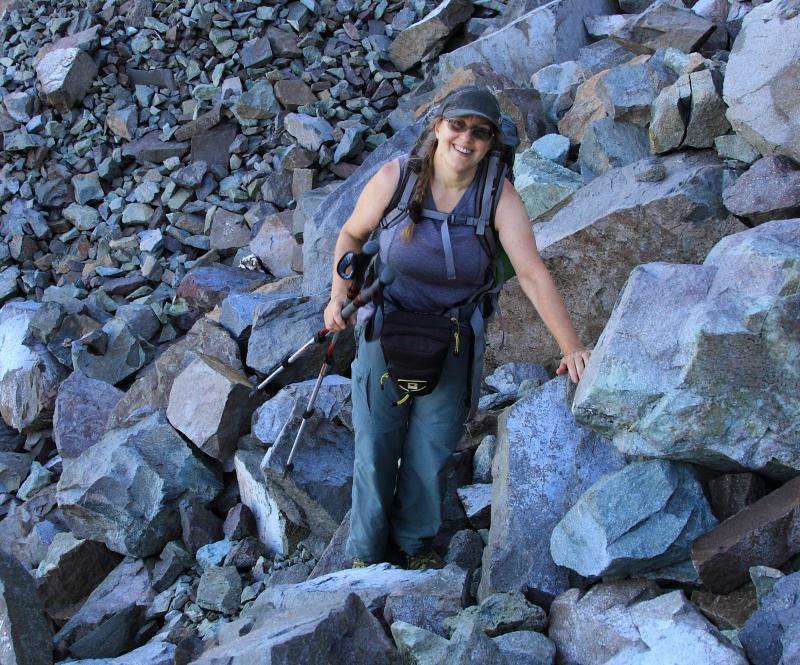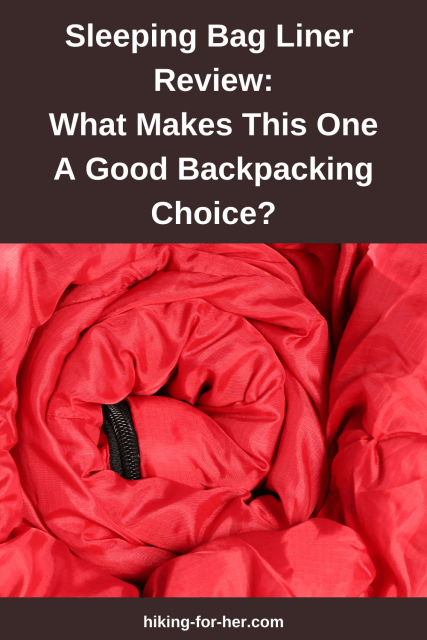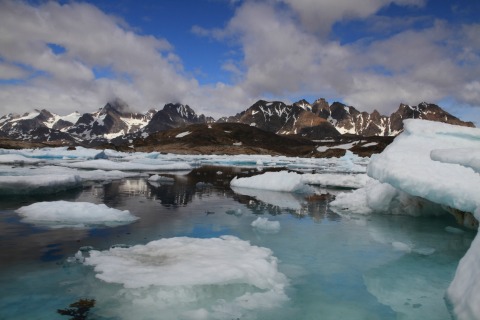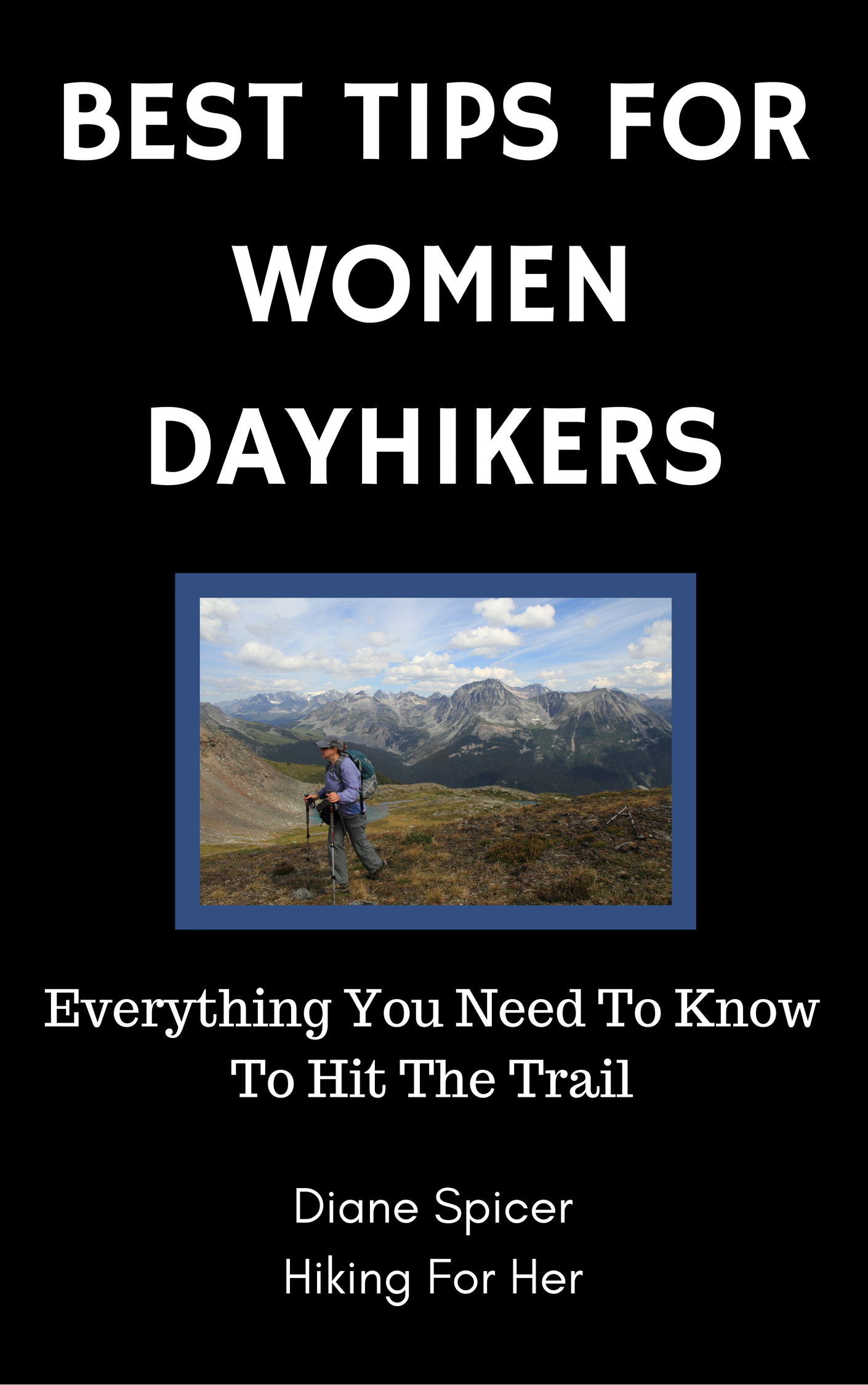Sleeping Bag Liner Review:
Should You Carry This One?
By Diane Spicer
Several kinds of backpackers might want to take a hard look at this sleeping bag liner review:
- Those who have trouble falling asleep because they're always cold.
- Those who place a high value on personal hygiene under conditions where daily bathing is not an option.
- Anyone who wants to extend the life of a high quality sleeping bag by sending the liner through the washing machine, instead of the bag.
Of course, any hiker who is curious about what it's like to use a sleeping bag liner inside of a bag is also invited to come along as I offer my experience with a liner.
So what's a sleeping bag liner?
It's exactly what the name implies: A piece of fabric that slips into your sleeping bag. Removable, washable, soft and warm.
A good idea if you can spare the extra weight on a backpacking trip, right?
If you've never seen one, read this first.
I've used several types of liners, and want to share my experiences with one particular brand.
As you read through my review, note what I pay attention to.
- It will help you decide if you need a sleeping bag liner, and if so, how to find the best one for your hiking plans.
Why do this sleeping bag
liner review?
In this sleeping bag liner review, I focused on three variables when I went looking for the best sleeping bag liner for my needs:
- comfort
- versatility
- cost
I purchased the Sea to Summit Thermolite Reactor Extreme Mummy Bag Liner when I was putting together my gear list for a hiking trip to Greenland.
There were 3 considerations uppermost in my mind as I did my comparison shopping and cost analysis:
a) COMFORT: staying warm in a less than warm climate;
b) VERSATILITY: being able to use the sleeping bag liner once I got back to more temperate hiking conditions at home;
c) PRICE: not paying too much, but paying enough for high quality that lasts for a long time.
No strings attached to this
sleeping bag liner review!
One other thing you should know: I paid for this liner with my own money, and have no financial ties to this brand.
- I'm sharing my experiences with you just because I want you to have this data before you go hunting for your own liner.
- It's the Hiking For Her virtual trail buddy support system!
Sleeping bag liner review:
Pros

Let's start off with the reasons why I recommend this liner, the Sea to Summit Thermolite Reactor, as a piece of best hiking gear in your gear locker.
There are 6 good reasons I carry this liner on my trips.
Full disclosure: This is an affiliate link, meaning that I will get a very small commission but it will cost you nothing to purchase through the link. Thanks for supporting Hiking For Her with your gear purchase!
Warmth
The Thermolite Reactor kept me warm throughout the rainy cold weather I encountered in Greenland.
By that, I mean that sometimes I only needed the liner to drive away the damp chill, and other times I relished the extra 4 or 5 degrees of heat in the middle of my sleeping bag at midnight.
Versatile warmth, in other words.
Cleanliness
There were many days in a row where my only choices for personal hygiene were to plunge into the ice cold ocean, or suck it up and hope for warmer weather the next day.
Knowing my sweaty torso and dirty legs were not going to leave me with a stinky, dirty sleeping bag allowed me to fall asleep faster inside my sleeping bag liner.
And knowing that I could toss it into the washing machine when I got home made it easy to snuggle up, regardless of my dirty hair.
Machine washable
When I got home from the trip, I washed the liner but not the bag. Lest you think I'm a complete degenerate, I did air out the sleeping bag for several days, turned inside out.
- Read this for details about the bag, and why washing it often isn't a great idea.
The liner is machine washable and came out of the dyer smelling great, all of its softness intact.
Small and compact
It had a tiny footprint in my backpack in its 3 x 5 inch stuff sack, yet unfurled to 84 x 36 inches of warmth and comfort.
It fit into my woman's tapered mummy sleeping bag with a bit of wiggling around (84 is a lot of inches when you're only 63 inches tall).
Adjustable
There's a drawcord that allowed me to keep my head and neck warm.
I always wake up when my head gets cold. Wearing a fleece beanie helps, but sometimes it falls off.
Inside this liner, I was able to squinch down inside my bag, pull the liner string, and prevent myself from waking up.
Cool name!
The name!!
Who wouldn't want a thermo-reactor to cuddle up with??
Sleeping bag liner review:
Cons
What would life be without the dark side?
Don't answer that! Just keep reading.
Here are the things I dislike about this particular sleeping bag liner.
Weight
It is heavy, weighing 14 ounces. That's a lot of weight if you're planning a minimalist backpacking trip.
But it made sense for my trip, where warmth was more important than weight (we had boat support when we moved from one big location to another, so I put up with the extra 14 ounces over the short haul).
If you're looking for something lighter, try the "less extreme" version (and save a few bucks, too).
Position of draw cord
If you are concerned about "sidedness", be aware that this liner's draw cord is in the middle rather than on one side.
- So it does not matter whether your sleeping bag zipper is on the right, or the left (an advantage).
- This might not seem like a big deal, but it might be in the middle of the night when you're trying to get out of your bag. And you can't find the draw cord!!
Not easy to use
Another issue I must mention in this sleeping bag liner review: ease of use.
This liner needs to be stuffed into your bag before you're in it, and then you'll have to zip up your bag once you're inside it.
This might present a challenge in a tiny tent in gale force winds (says the gentle voice of experience).
One solution to this daily ritual, if you have the luxury of space, is to stuff your sleeping bag containing the liner into your stuff sack each morning.
My stuff sack was not capacious enough to allow me to do this, but maybe yours is.
Cost
Price: always a consideration, right?
At the time of this review, the cost was around $69 US.
So I paid a lot for this liner, but I knew that I needed it to ensure my sleeping comfort.
- I'm useless on the trail if I don't sleep, so I was willing to invest the money into this particular piece of gear for this particular trip.
Bonus: I carry it with me on day hikes year round as a "just in case" backup.
You never know when hypothermia is going to raise its ugly head due to weather or injury, so I'm prepared.
Double bonus: Sometimes I only pack the liner on a backpacking trip, when
- I know I'm going to be sleeping under shelter in mild weather. The weight savings feels great in my backpack.
Let's go for the gold here: Triple Bonus!
- By purchasing the liner through REI, a gear co-op renowned for giving back up to 10% of its profits to its members every year, I earned a rebate on my purchase.
- Read more about REI membership benefits here.
Too roomy?
One more thing: I wish they made a woman's version of this liner.
A smaller footprint would be more compatible with my sleeping bag and my small stature.
However, when I loan it to taller folks, it's good to have that extra fabric.
Sleeping bag liner review: Conclusions
I've attempted to be fair and balanced in this sleeping bag liner review, because it's not a trivial piece of gear to purchase.
And I don't recommend a liner to every backpacker.
Weigh comfort against price, and think about how this liner might make your life on the trail easier.
For the price, you can't go wrong for that little extra bit of assurance that you'll sleep warm!
And if you use this piece of gear infrequently, it will last a long, long time.
Good luck deciding whether or not you need a sleeping bag liner! I hope my opinion was useful.
Home page > Hiking Gear Reviews >
Sleeping Bag Liner Review
|
I get emails all the time about what I wear, eat, carry and love to use on the trail. That's
why I provide affiliate links to you: the best gear that I use myself and have seen used by other hikers is instantly
available for your consideration, and the gear company sends a few
pennies per dollar to this reader-supported hiking website. There is no added cost to you! Everyone ends up a winner: Great gear for you, strong gear companies, and more free hiking tips for everyone. Thanks very much for your support. It's warmly and sincerely appreciated. It also helps send these hiking tips to all your virtual trail buddies around the globe. |
 |




